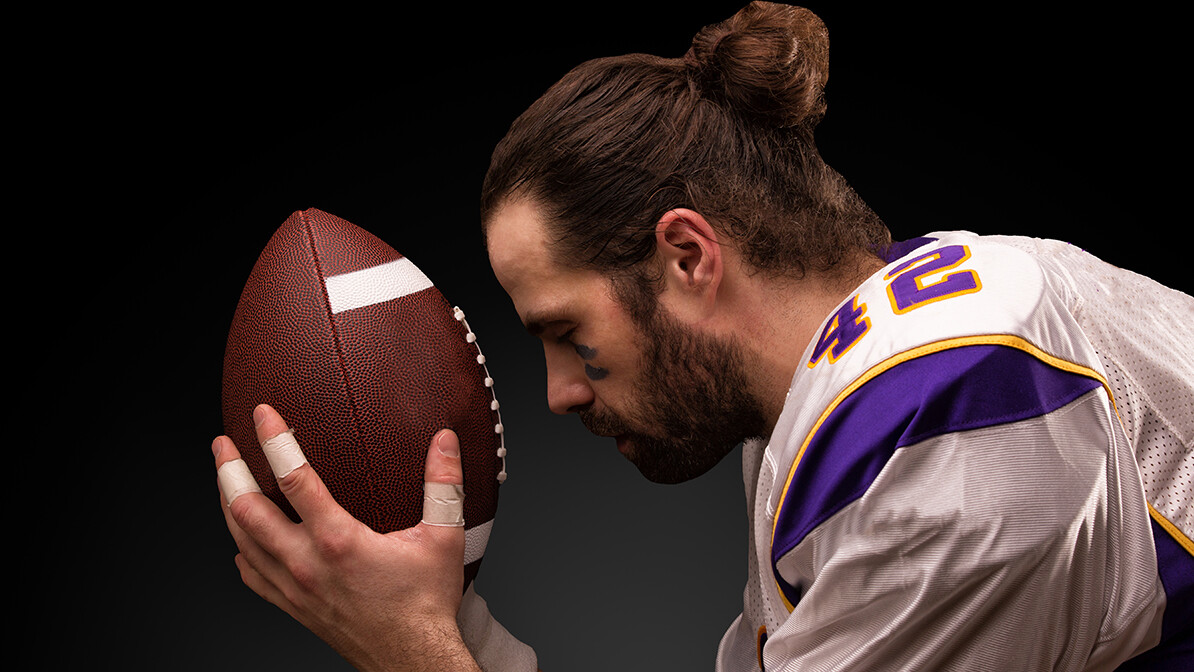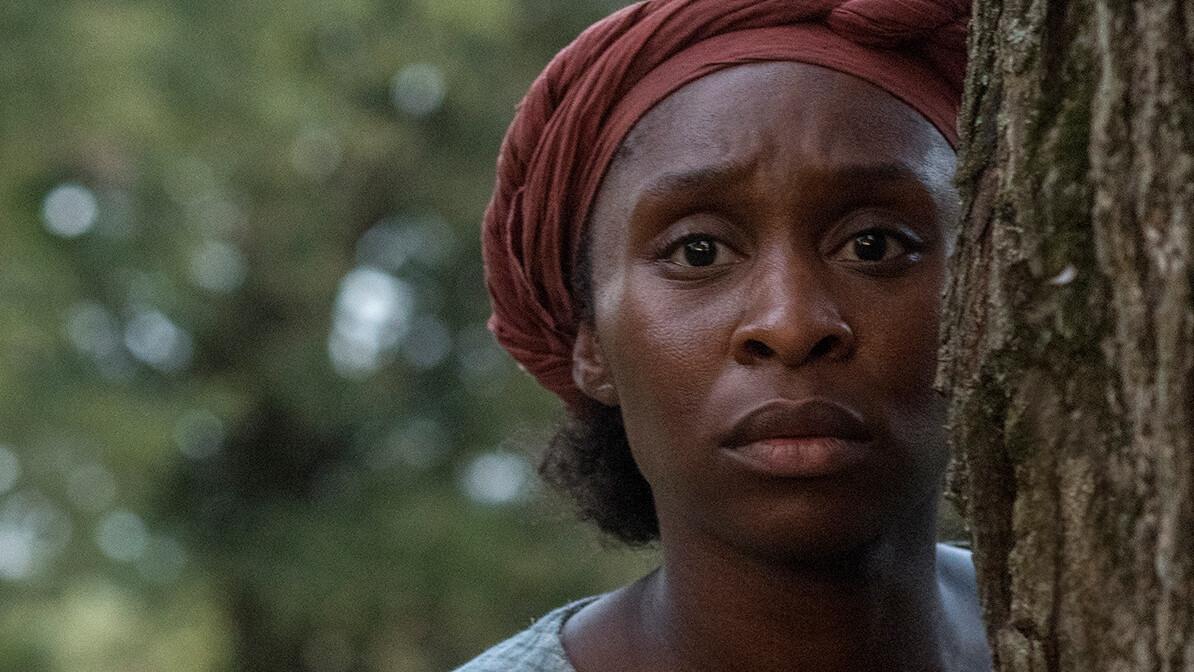- Home
- Entertainment
- Burgess Jenkins on Family and Sacrifice in ‘I Am Potential’ (Part 1)

Burgess Jenkins on Family and Sacrifice in ‘I Am Potential’ (Part 1)
JF: Could you please tell me a little bit about the movie, I Am Potential?
Burgess: Gosh, where do I begin? It was one of those stories that you read, and you’re blown away to find out that it’s a true story. I’ve had the good fortune of being a part of a number of true stories and they’ve all been very impactful and some of them remarkably well told and certainly interesting. But I Am Potential was such an unbelievable story of overcoming odds. To read how this young man had and dealt with so much and come so far was miraculous and inspirational.
JF: Could you please tell me a little bit about the movie, I Am Potential?
Burgess: Gosh, where do I begin? It was one of those stories that you read, and you’re blown away to find out that it’s a true story. I’ve had the good fortune of being a part of a number of true stories and they’ve all been very impactful and some of them remarkably well told and certainly interesting. But I Am Potential was such an unbelievable story of overcoming odds. To read how this young man had and dealt with so much and come so far was miraculous and inspirational.
When I got the script and finished reading it, I remember putting it down and thinking, ‘What an honor it is to be a part of this project.’ Then I immediately picked it back up and read it again. I’m not sure I’ve ever done that with a script that I put it down, shut the cover, took a second, picked it back up, and read it all over again.
JF: What was it about the script that tugged at you?
Burgess: The family and how they realized that if they all rallied together and found the best in each other, that they could take this young man who had so many difficulties and against so many odds and help him focus on what his gifts were and what he could be and what he could do. The sacrifices they all made collectively, especially my character, in getting it done and having him have such a full life.
I think so many people – and not in a disparaging way – would have thrown their hands in the air and said “We give up” or “We just don’t know what to do. It’s too insurmountable. We don’t know how to tackle this.”
The Hughes family didn’t look at it that way. They didn’t consider that. Maybe very early on when they weren’t sure what his gifts were because he was so very young, but as soon as some of his musical abilities and those things came into play, they immediately focus on that, and they gave everything they had to it. I think that’s incredibly unusual and a gift that is beyond inspirational. It’s the kind of thing that everybody should strive for. To be given that as a story was just miraculous.
Meeting the Real Patrick John Hughes
JF: Did you get a chance to meet the Hughes family? If so, what tips or advice did you get from the real-life version of your character, Patrick John Hughes, to help you prepare for the role?
Burgess: First of all, I did meet the family. We all met our counterparts, and they were present pretty much daily. They were a big part of the process, and they were, I think, producing partners with American Family Studios. It was such a gift.
They’re amazing people, and they’re very kind, giving people. I think it would be difficult for a lot of people to watch other people play their lives and not want to intervene or interject or make comments and that kind of thing. And they didn’t at all. They were nothing but super helpful and interested and interesting. That was a lot of fun.
I’ve played a number of real characters before and some of them have been deceased and some of them not, but I’ve never had the opportunity to spend that kind of time around my actual counterpart and have them be so helpful.
JF: Looking at it from an actor’s perspective and all of the preparation that goes into a role, how does portraying a real person differ in terms of the preparation versus preparing for a fictional character that you’re given carte blanche to develop?
Burgess: I think you just hit the nail on the head. In some ways they are very similar and in other ways they’re incredibly different. I would start with the differences by saying that you’re never obligated, but if you’re an artist who wants to portray life accurately, then you feel the pull to honor who those people are as best you can. It is their lives that you’re stepping into. You spend as much time as you can researching how they feel, how they think, how they interact with others. Sometimes it’s physical in their manner and their tone and their voice that impact you. Other times, it’s their heart, their soul, and how they see the world and you allow that to infiltrate. Then, of course, you can go from there.
As an actor, in order the prepare for any character, you always have to connect through your own emotional bridge. I can’t feel your emotions, but I can empathize with them. By taking what you understand about those people, and then finding your own bridge to it is the key.
But the way it’s similar is that you do the process of finding the emotional bridge. But the difference is that you’re honoring what is available to you about those people, and you got to make sure that you’re doing your best to portray them accurately. You don’t want to skew away from the way those people live their lives for obvious reasons but honoring the story of the way that it’s unfolded. It’s a long way to go to say there’s some restrictions about it.
With fictional characters, it is exactly what you just said; it’s carte blanche. You get to do anything and everything.
I would not say that one is better than the other. They’re different challenges, and that’s what makes it exciting to play.
The Inspiration and Growth Found Within the Story
JF: What is the overall message you think viewers took from the movie and why is that message so important in today’s world?
Burgess: There’s so many messages I feel you get from I Am Potential. First of all, just unbelievable inspiration. Really, the idea that anything is possible. I feel like that is the heart and soul of that movie. I would challenge anybody to watch that movie and not appreciate everything they have and feel like any obstacle they’ve got is small by comparison to what Patrick Henry Hughes accomplished. It really is an incredible story of overcoming.
I would also say that people would take away from it very strong family ties and values. It shows what a family can do when they pull together and all get on the same page with each other. There’s just so much love in that family and in the story, and I feel like that is in some ways leaving our landscape in film and television. You just don’t see a lot of family values by comparison to the way it was in the past. For me personally, I think that’s a missing component. It’s a beautiful thing to get to see lived out on screen.
JF: Outside of Patrick Henry Hughes, I think it’s safe to say that your character grows the most throughout the film, from being somewhat distant as a husband and father in the beginning to deciding to be fully committed to and sacrificing for his family, especially Patrick Henry. What role does his faith and his commitment to be the person his family needs play into that growth?
Burgess: Everything. I think without his belief in what God tasked him to do and his faith, I think most people would not be able to see that to its end. His transformation was clearly very spiritual.
Talking to Patrick about it and hearing him talk about finding the reserve strength he needed to be able to work the crazy hours and give up his previous job and focus so heavily on being there for his son, it’s clear that his faith and his love of his family is paramount, and that’s what saw him through.
JF: That’s something you don’t see at the beginning because he chose oftentimes to stay late at work versus helping out around the house. And you saw his wife’s frustration with him because of those decisions. It was nice to see that growth.
Burgess: I think it’s very relatable. I wouldn’t even necessarily call his previous actions selfish so much as they were a bit self-centered at times. They were just human desires that we get wrapped up in.
Getting a curveball thrown at you where one of your children is in desperate need of you in ways that the other children aren’t is a wake-up call. To see somebody who wasn’t necessarily being any more self-indulgent than perhaps the average person might have a tendency to be, but then realizing that he doesn’t have that luxury. He was leaving his wife out to dry, and he was making selfish decisions or self-centered ones. When that realization hit him, it was amazing to see what he was willing to sacrifice, but also what he gained. I think that that’s another wonderful part of the story – seeing what you gain when you give up the things that you think are most important for the things that really are.
Trending Now
Sign up today for your Inspiration Today Daily Newsletter
Supercharge your faith and ignite your spirit. Find hope in God’s word. Receive your Inspiration Today newsletter now!
John Farrell
John Farrell serves as the Digital Content Manager at Inspiration Ministries, where he oversees the planning, organization, and management of website content to support the ministry's global digital outreach. With a strong background in writing and editorial strategy, John ensures that the articles, devotionals, and discipleship resources on Inspiration.org are accurate, engaging, and aligned with the ministry's mission.
John has authored more than 1,000 articles, press releases, and features for Inspiration Ministries, NASCAR, Lionel, and Speed Digital. His versatility as a writer is also showcased in his 2012 book, The Official NASCAR Trivia Book: With 1,001 Facts and Questions to Test Your Racing Knowledge.
A graduate of Appalachian State University, John brings excellence and attention to detail to the digital experience at Inspiration Ministries. He lives in Concord, N.C., with his wife and two sons.
Related Articles
March 10, 2025
Finding Total Victory on the Road to Championship
I have been playing competitive golf for 55 years. Through the various stages of my life, my…
March 7, 2025
Average Joe Movie: SCOTUS, Praying Football Coach Backstory
When Coach Joe Kennedy knelt to pray at the 50-yard line after a high school football game, he had…
February 28, 2025
The Power of Story: A Muslim Journey to Hope
Storytelling is one of the oldest and most powerful ways to touch the human heart. Parents tell…
February 27, 2025
‘Harriet’ Movie: Courage, Freedom, Faith
Antebellum abolitionist Harriet Tubman had convictions and courage that helped free herself…
Next Steps To Strengthen Your Walk
Inspiration Today Newsletter
Supercharge your faith and ignite your spirit. Find hope in God’s word. Receive your Inspiration Today newsletter now!
Christian Articles
Find articles to strengthen your walk and grow your faith. We have a wide range of topics and authors for you.
Submit A Prayer Request
We are here for you. Simply click on the button below to reach us by form, email or phone. Together we will lift our hearts and voices with you in prayer.





